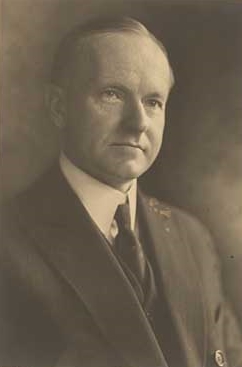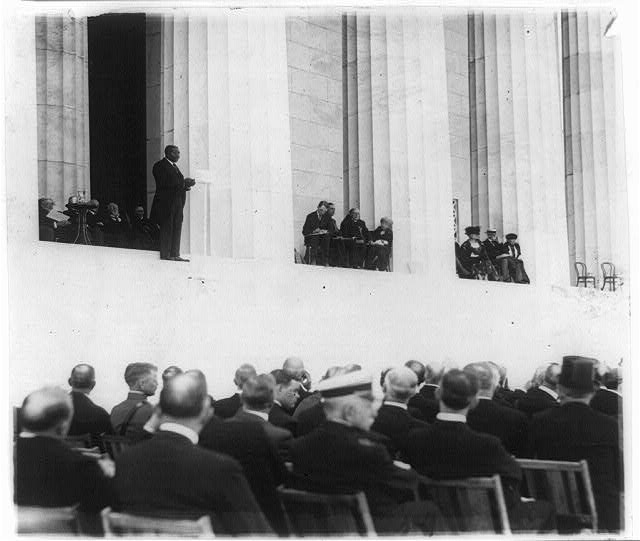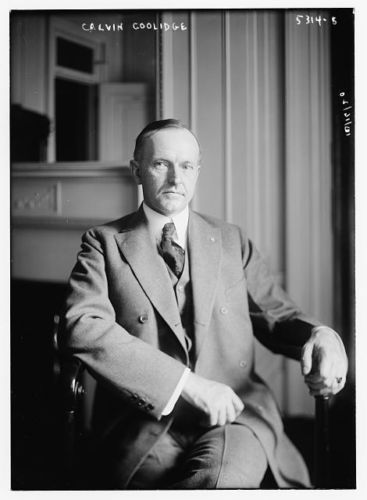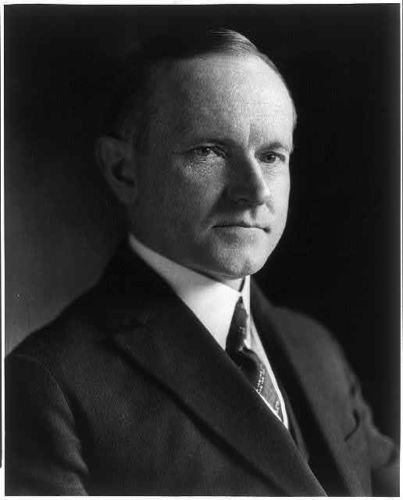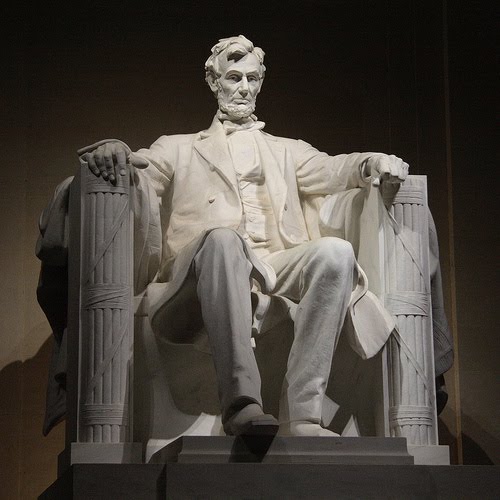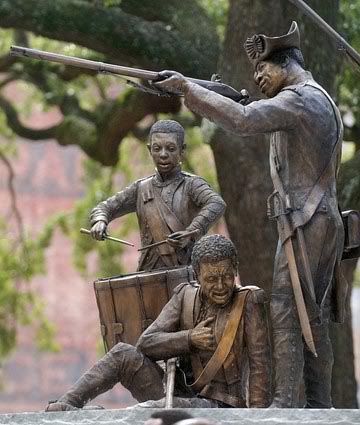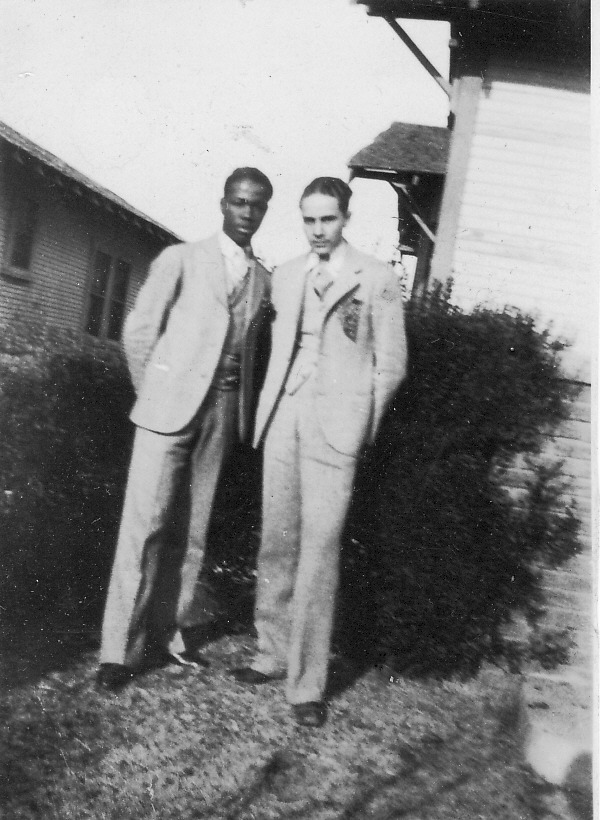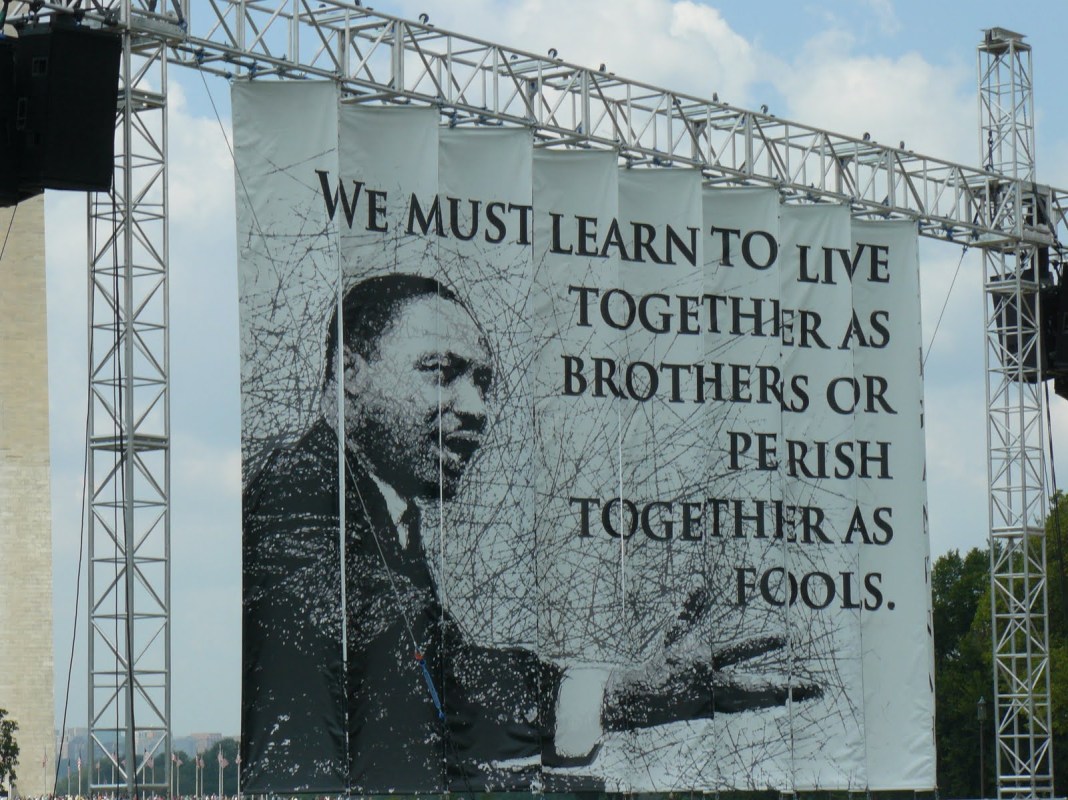“[Lincoln] re-established the theory of the Fathers, that the government belongs to all the people…Theories are of very little use in this world which cannot be put into practical operation. The theory of freedom would not help any one unless it worked out by bringing greater happiness and success to those who were in the possession of it. There is very much that the people need which cannot be bestowed upon them by the Constitution, or by laws. If they have it at all, they must provide it for themselves. The government can help, but in the last resort every one must work out his own destiny. Freedom is a high estate. It places on the individual grave duties and grave responsibilities. If these be met and performed, success will follow. If they be neglected and evaded, the end will be failure…Together we are working out, in theory and in practice, that hope of Washington and Lincoln. It is a long, slow, toilsome, and laborious process, accompanied oftentimes with disappointment and delays, but in the progress which has been made there is every reason for encouragement and satisfaction. It takes time and patience and perseverance to put into practice our theory of human rights…It is well for us, who must live together as Americans, whatever our race or creed may be, constantly to remember his [Lincoln’s] words: ‘We are not enemies, but friends. We must not be enemies.’ Those who stir up animosities, those who create any kind of hatred and enmity are not ministering to the public welfare…Out of a common suffering and a common sacrifice there came a new meaning to our common citizenship. Our greatest need is to live in harmony, in friendship, and in good-will, not seeking an advantage over each other but all trying to serve each other” — Calvin Coolidge, “Progress Toward Freedom,” February 12, 1923
August 14, 1924
My Dear Dr. Moton:
The approaching Annual Convention of the National Negro Business League is of particular interest and note because it will mark the quarter centennial of this organization. In addressing to you, for the Convention, my felicitations and good wishes on this occasion, I wish particularly to pay tribute to the League’s founder and your distinguished predecessor, the late Booker T. Washington. His vision of the problems of the coloured people was indeed that of a seer, and your League is one of the monuments to his life work…I wish to tell you of the deep impression that was made upon me by my studies of the Negro race’s achievements. In the accumulation of wealth, establishment of material independence, and the assumption of a full and honourable part in the economic life of the nation, it may fairly be said that the coloured people themselves have already substantially solved these phases of their problem. If they will but go forward along the lines of their progress in recent decades, and under such leadership as your own and many others among their excellent organization are affording, their future will be well cared for. That they will continue in this way of advancement cannot be doubted by any one who knows their accomplishments heretofore. They will continue their efforts for educational progress and spiritual betterment; and just as they demonstrate their eagerness for such improvement, they will find themselves enjoying a constantly greater and greater support and sympathy at the hands of the whole community…I believe their full political rights will be won through the inevitable logic of their position and rightfulness of their claims.
Very truly yours,
Calvin Coolidge
Coolidge could hardly foresee what would be unleashed against families and whole communities as a result of the Great Society in 1965. How different America and the rights of all would stand had the progress to which Coolidge referred and praised so boldly, continued uninterrupted beyond his time to withstand the onslaught of a servile political strategy keeping one population pitted against another and beholden to identity politics over colorblind principles and individual character.
“Looking back only a few years, we appreciate how rapid has been the progress of the colored people on this continent. Emancipation brought them the opportunity of which they have availed themselves. It has been calculated that in the first year following the acceptance of their status as a free people, there were approximately 4,000,000 members of the race in this country, and that among these only 12,000 were the owners of their homes; only 20,000 among them conducted their own farms, and the aggregate wealth of these 4,000,000 people hardly exceeded $20,000,000. In a little over a half century since, the number of business enterprises operated by colored people had grown to near 50,000, while the wealth of the Negro community has grown to more than $1,100,000,000. And these figures convey a most inadequate suggestion of the material progress. The 2,000 business enterprises which were in the hands of colored people immediately following emancipation were almost without exception small and rudimentary. Among the 50,000 business operations now in the hands of colored people may be found every type of present day affairs. There are more than 70 banks conducted by thoroughly competent colored business men. More than 80 per cent of all American Negroes are now able to read and write. When they achieved their freedom not 10 per cent were literate. There are nearly 2,000,000 Negro pupils in the public schools; well nigh 40,000 Negro teachers are listed, more than 3,000 following their profession in normal schools and colleges. The list of educational institutions devoting themselves to the race includes 50 colleges, 13 colleges for women, 26 theological schools, a standard school of law, and 2 high-grade institutions of medicine. Through the work of these institutions the Negro race is equipping men and women from its own ranks to provide its leadership in business, the professions, in all relations of life.
“This, of course, is the special field of usefulness for colored men and women who find the opportunity to get adequate education. Their own people need their help, guidance, leadership, and inspiration. Those of you who are fortunate enough to equip yourselves for these tasks have a special responsibility to make the best use of great opportunities. In a very special way it is incumbent upon those who are prepared to help their people to maintain the truest standards of character and unselfish purpose. The Negro community of America has already so far progressed that its members can be assured that their future is in their own hands. Racial hostility, ancient tradition, and social prejudice are not to be eliminated immediately or easily. But they will be lessened as the colored people by their own efforts and under their own leaders shall prove worthy [not to whites but to our common ideals and themselves] of the fullest measure of opportunity” — Excerpt of Address at Howard University, June 6, 1924
“One of the most natural reactions during the war was intolerance. But the inevitable disregard for the opinions and feelings of minorities is none the less a disturbing product of war psychology. The slow and difficult advances which tolerance and liberalism have made through long periods of development are dissipated almost in a night when the necessary war-time habits of thought hold the minds of the people. The necessity for a common purpose and a united intellectual front becomes paramount to everything else. But when the need for such a solidarity is past there should be a quick and generous readiness to revert to the old and normal habits of thought. There should be an intellectual demobilization as well as a military demobilization. Progress depends very largely on the encouragement of variety. Whatever tends to standardize the community, to establish fixed and rigid modes of thought, tends to fossilize society. If we all believed the same thing and thought the same thoughts and applied the same valuations to all the occurrences about us, we should reach a state of equilibrium closely akin to an intellectual and spiritual paralysis. It is the ferment of ideas, the clash of disagreeing judgments, the privilege of the individual to develop his own thoughts and shape his own character, that makes progress possible. It is not possible to learn much from those who uniformly agree with us. But many useful things are learned from those who disagree with us; and even when we can gain nothing our differences are likely to do us no harm.
“In this period of alter-war rigidity, suspicion, and intolerance our own country has not been exempt from unfortunate experiences. Thanks to our comparative isolation, we have known less of the international frictions and rivalries than some other countries less fortunately situated. But among some of the varying racial, religious, and social groups of our people there have been manifestations of an intolerance of opinion, a narrowness of outlook, a fixity of judgment, against which we may well be warned. It is not easy to conceive of anything that would be more unfortunate in a community based upon the ideals of which Americans boast than any considerable development of intolerance as regards religion. To a great extent this country owes its beginnings to the determination of our hardy ancestors to maintain complete freedom in religion. Instead of a state church we have decreed that every citizen shall be free to follow the dictates of his own conscience as to his religious beliefs and affiliations. Under that guaranty we have erected a system which certainly is justified by its fruits. Under no other could we have dared to invite the peoples of all countries and creeds to come here and unite with us in creating the State of which we are all citizens…
“We must not, in times of peace, permit ourselves to lose any part from this structure of patriotic unity. I make no plea for leniency toward those who are criminal or vicious, are open enemies of society and are not prepared to accept the true standards of our citizenship. By tolerance I do not mean indifference to evil. I mean respect for different kinds of good. Whether one traces his Americanism back three centuries to the Mayflower, or three years of the steerage, is not half so important as whether his Americanism of to-day is real and genuine. No matter by what various crafts we came here, we are all now in the same boat. You men constituted the crew of our “Ship of State” during her passage through the roughest waters. You made up the watch and held the danger posts when the storm was fiercest. You brought her safely and triumphantly into port. Out of that experience you have learned the lessons of discipline, tolerance, respect for authority, and regard for the basic manhood of your neighbor. You bore aloft a standard of patriotic conduct and civic integrity to which all could repair. Such a standard, with a like common appeal, must be upheld just as firmly and unitedly now in time of peace. Among citizens honestly devoted to the maintenance of that standard there need be small concern about differences of individual opinion in other regards. Granting first the essentials of loyalty to our country and to our fundamental institutions, we may not only overlook but we may encourage differences of opinion as to other things. For differences of this kind will certainly be elements of strength rather than of weakness. They will give variety to our tastes and interests. They will broaden our vision, strengthen our understanding, encourage the true humanities, and enrich our whole mode and conception of life. I recognize the full and complete necessity of 100 per cent Americanism, but 100 per cent Americanism may be made up of many various elements.
“If we are to have that harmony and tranquility, that union of spirit which is the foundation of real national genius and national progress, we must all realize that there are true Americans who did not happen to be born in our section of the country, who do not attend our place of religious worship, who are not of our racial stock, or who are not proficient in our language. If we are to create on this continent a free Republic and an enlightened civilization that will be capable of reflecting the true greatness and glory of mankind, it will be necessary to regard these differences as accidental and unessential. We shall have to look beyond the outward manifestations of race and creed. Divine Providence has not bestowed upon any race a monopoly of patriotism and character” — Excerpts from Address to American Legion, Omaha, Nebraska, October 6, 1925
The modern impatience for instantaneous transformation and intolerance for anyone who fails to measure up to the required rate of change at a given time, whether as individuals or as whole generations, is incredible to behold. The lack of proportion, absence of perspective, and level of suspicion which fuels so much of modern American popular culture reveals more about the frailties and failures of this generation than it does about the acts of those who came before us. We are so busy pointing out the speck in the eye of previous generations that we miss the obvious and massive plank in our own. As Someone once said, “First remove the plank that is in your own eye and then you will see clearly to remove the speck that is in your brother’s eye.” The same holds just as true with generations.
We are quick to dismiss and tear down every appearance of double standards or inconsistency in our history but, no less than the very things we ignorantly and condescendingly condemn, we live in an age of self-inflicted problems – for we, like they, are just as human and just as fallible. We decry slavery but live as subjects to political correctness and a pervasive bondage of the mind. We strive to right injustices of wrongs long ago but fail to hear the cries of the weak and in need right here in our own time. We vilify the callous indifference of early America to minorities, women, the poor, but fail to understand what the Founders did do on behalf of all, attributing blame for what subsequent generations did (including our own) to abandon, reverse, and unravel the Founding. Ultimately, as Coolidge observed, there is little justified basis for criticism when it comes to America’s ideals. The discontent, he noted, is actually with ourselves. We get what we put in to government and that demands the highest level of participation and informed citizenship by all.
In the current rush to indict everyone else but ourselves, as a generation, we hurry past actions taken and accomplishments achieved that do not conform to the predetermined conclusion that America is racist and only a reconstitution of our government, society, and laws will begin to override that deeply-embedded “sin.” The mechanism for this overhaul is education, teaching or failing to teach the whole record and in its place, an approved historical narrative of class division, racial oppression, and economic disparity that supposedly made America. All the while, the culprits of genuinely wrong political decisions escape unscathed while the innocent are either given a hatchet treatment by “historians” for the misdeeds of others or ignored altogether, another fashionable tactic to avoid proving the many outlandish mischaracterizations, impossible to substantiate with the truth.
Calvin Coolidge is not the only target of this alternating scheme of attack-ignore played out in dozens of textbooks, “scholarly” journals and books, as well as much of the rhetoric of today’s politicians. The Founders have been demonized for many years by the likes of Charles Beard and a flock of others, who shrouded his absurd claim in the guise of respectable scholarship that America was established by rich men forming a system rigged to despoil the poor and weak to enhance their own wealth and power. Attacked for keeping slavery, oppressing women, and harming the impoverished, the Founders’ genuine belief in what the Declaration meant for everyone, their work to end slavery, raise the regard for women, and truly help the needy is swept under the rug. It is conveniently omitted that increasing numbers of blacks attained freedom in the years immediately following 1776, that they could own property, and engage in the blessings of a system grounded in the eternal truth the Founder’s believed that: “All men [humans] are created equal.”
It is conveniently forgotten that women could exercise the vote in the first elections and only declined to do so because they understood that the interests of their fathers, husbands, brothers ran in accord with their own. A majority of women nationwide had been exercising the franchise for years by the time the supposed right was added through the Nineteenth Amendment. Laws of inheritance, recognizing the equality of women, and repealing the old primogeniture customs was only part of the Founder’s work. The eradication of slavery in the states throughout the 1780s, 90s, and into the earl 1800s moved forward, even in the South, as a direct result of the Declaration’s appeal. The Northwest Ordinance of 1787, prohibiting slavery outright, laid the basis for its demise, as did the Constitutional ban to take effect by Congress in 1808. The manumission movement of the Founding generation ensured that slaves did not remain enslaved in mind but helped toward self-government, whether in a country of their own creation (Liberia) or here in America. These were not racist actions, they were the compassionate options – approved by free blacks and whites alike – seeking to restore all to the place God had made everyone. That restoration of equality before God was the ideal of the Founding. The property requirements of voting, a mechanism the Founders quickly realized was not necessary to our system, gave way to a broader participation; an average 95% of the populations in most states could exercise the vote from the Republic’s earliest years. The exception is New York, which stood around 75%. The Founder’s belief that government had a part in helping the needy, whether it be apprenticing orphans to a trade, enlisting the unemployed to work for their needs, or assisting the elderly, is similarly left out of today’s curricula and thus leave moderns largely in the dark about all the Founders were doing – beyond writing new constitutions and new laws – to empower all, to give substance to that eternal truth: “All men are created equal.”
So, what changed? What suspended the advances wrought by the Founding generation? It was not the Founders. Remember, that most of them were gone by the time another movement, an ideology foreign to the Founder’s ideal of equality and liberty, began to justify slavery as a positive good. Those still around, like Madison, fought it vehemently in their old age, but it was younger men like John Calhoun, Alexander Stephens, Stephen Douglas, and Roger Taney, who parted with that Founding ideal of natural rights and adopted their own. It led to the creation of a political party in the Midwest which included in its very first campaign platform the Declaration’s thesis that all are equal before God and thus slavery irreconcilable to the American system. It was left to Abraham Lincoln to expose that false proposition for what it was through that now famous series of debates with Douglas. It was these two competing visions, one affirming that all people are created equal and the other denying it (or at best, protecting its denial for economic reasons), that drove America to war.
From that point onward, the Democratic Party, defined by its persistent opposition to the Declaration’s principle and the Founder’s actions, had an almost insurmountable handicap to overcome if it was ever going to hold political power for any duration in the future. Its protest to the Thirteenth, Fourteenth, and Fifteenth Amendments, its resistance to President Grant’s work to defeat the Klan and restore racial equality, its resentment toward the election of black legislators to Congress and state legislatures, its establishment of Jim Crow laws, its long-held aversion to equal suffrage were all legacies brought into the twentieth century. It was no coincidence that the great Frederick Douglass should say,
“I am a Republican, a black, dyed in the wool Republican, and I never intend to belong to any other party than the party of freedom and progress.”
The Democrats’ loosely-partnered coalition of radical and conservative elements spilled into public view at the 1924 Democrat Convention, broadcast nationally via radio. The 103-ballot debacle illustrated the Party’s problems were far greater than even the divergence in Republican ranks at the time. Coolidge’s leadership of the Grand Old Party marked a departure from the previous process of selecting candidates who fit into the “Good Ol’ Boys Club” and reclaimed the goal of a merit-based team of grassroots workers united on common principles.
The strong support of women and blacks for the Republican Party simply baffles “scholars” who are unable to see why because they have refused to acknowledge inconvenient parts of history. Coolidge’s key role in discrediting attempts to keep racist attitudes fashionable through movies like Birth of a Nation, his collaboration with Dr. Robert Moton of Tuskegee, his support for Howard University, his correspondence with leaders of all political views – including those who advocated a third party in 1924, his partnership with blacks to pass anti-lynching legislation, establish a commission on race relations, desegregate federal facilities, care for wounded veterans, honor heroic examples, and take the opportunity to teach, through his public messages, on toleration and mutual respect, simply get ignored. Instead, we are taught the opposite, men like Coolidge did nothing as the Klan rose in membership and not until FDR and Truman did the White House act on behalf of blacks. This is a deliberate distortion on the part of biased and partisan sources, presuming the mantle of objectivity, like Art Schlesinger as Claremont’s Dr. Thomas Silver shows.
The Democratic Party had to distance itself from its own nagging legacy of bigotry and filibuster of racial harmony and, if possible, assign it to the “other side,” the Republican Party. The stage was set with the disillusion toward Republicans after the disastrous administration and defeat of Herbert Hoover in 1932. While the New Deal was not aimed at helping blacks, good intentions came to stand in for solid results through the rhetoric of Franklin and Eleanor Roosevelt. Harry Truman, by extending the GI Bill to black veterans helped further that perception of compassion felt by one party but denied them by the GOP.
Finally, the credit for the victory of desegregation and march toward racial peace could not be secured by a Republican, the other side resolved. That is why Senators Lyndon B. Johnson and John F. Kennedy helped kill the Civil Rights Act of 1957, the legislation that would become the Civil Rights Act of 1964, signed by none other than President Lyndon B. Johnson. The fact that more Republicans voted for both measures, the same essential legislation, and it was a Republican who overcame the filibuster by Democrats in 1964, is now forgotten. The popular perception that Democrats cared while Republicans did not was finally secured with that signature. The Party founded to end slavery, to protect the natural rights of all, whatever color, gender, or economic condition, and defend the Declaration’s ideals would now be transformed by its opponent into a party of prejudice, suppression, and privilege. The last fifty years have witnessed the reaction and defeatism of the Republican Party still reeling from 1932 and ridden with guilt for a false image of itself invented for it by the Democrat Party. Too many Republicans have consequently succumbed to a timid complicity in that condescending and destructive paternalism of the Democrat Party. Returning to a spirited defense of individual ability rather than government reliance and the unalienable rights that do not originate with politicians but with God our Father, means we are not just fellow Americans but share a common duty to each other as brothers and sisters.
The real injustice is not who deserves a particular historical kudos. What matters far more is liberating the countless lives mentally enslaved to this day by a system intended to keep them dependent, voting a certain way, and adhering to political masters who tell them that American principles, rigged to benefit only white men, are responsible for their circumstances. Meanwhile, these modern-day slave traders benefit by perpetuating the problems, hustling hate and violence to keep neighborhoods broken and families apart, convince everyone to believe that loving families built on committed marriages and a life forged by hard work are what weaken rather than what makes society stronger, prevent healing and fuel what is truly a despicable race industry. The fuel has to be shut off and the destruction that is threatened on anyone who dares leave the modern plantation must see swift consequences against those who would presume to enslave others politically, materially, mentally, and spiritually.
Until history – with all of its good and bad – is properly taught in perspective, ignorant reaction (on all sides) will continue to hold sway over this generation and the future. Rightly did Someone also say, “The truth will set you free” and again “Our people perish for lack of knowledge.” Indeed, but not without a great cost each one must pay to escape modernity’s enslavement of the mind. Rather than continually ripping off the historical scars that need to finally heal for real peace to be possible, carefully selected narratives are deployed as weapons to demonize the Founding as consisting of some predetermined set of conditions we have inherited preventing us from the most basic exercise of choice over our own lives. These narratives are used as weapons to maintain division, preserve hatred between one another, and defend that old lie that some men are born to be slaves of others and it is for their own good that we keep them so. Coolidge had no use for so evil a doctrine and he stands between us and the Founding generation of men and women, black and white, who appealed to an infinitely better ideal.
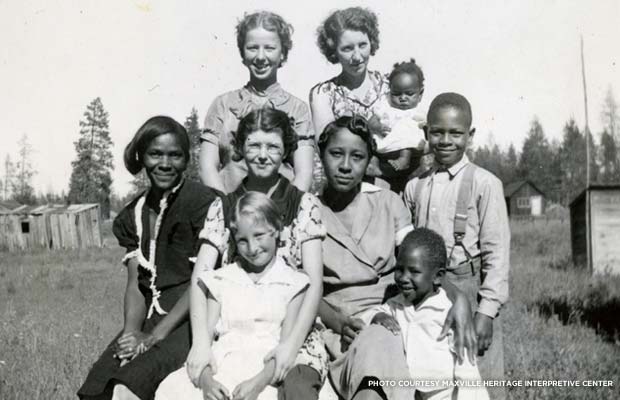
Photo courtesy of Maxville Heritage Interpretive Center, http://blog.preservationnation.org/2013/09/27/web-companion-nearly-forgotten-history-maxville-ore/#.Va_bCfmz43P.
Further Reading-Viewing
Marvin Olasky. The Tragedy of American Compassion (Washington: Regnery, 1994)
Thomas G. West. Vindicating the Founders: Race, Sex, Class, and Justice in the Origins of America (Lanham: Rowman & Littlefield, 2001)
Runaway Slave: A New Undergound Railroad. Dir. Pritchett Cotten. Perf. C. L. Bryant, Glenn Beck, Andrew Breitbart, Herman Cain, Thomas Sowell, and Alveda King. Ground Floor Video, 2012.
